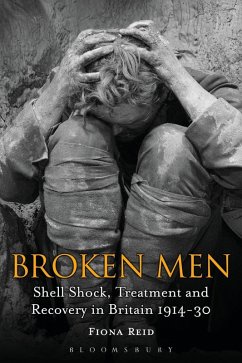Shell shock achieved a very high political profile in the years 1919-1922. Publications ranging from John Bull to the Morning Post insisted that shell-shocked men should be treated with respect, and the Minister for Health announced that the government was committed to protecting shell-shocked men from the stigma of lunacy. Yet at the same time, many mentally-wounded veterans were struggling with a pension system which was failing to give them security. It is this conflict between the political rhetoric and the lived experience of many wounded veterans that explains why the government was unable to dispel the negative wartime assessment of official shell-shock treatment. There was also a real conflict between the government's wish to forget shell shock whilst memorialising the war and remembering the war dead. As a result of these contradictions, shell shock was not forgotten, on the contrary, the shell-shocked soldier quickly grew to symbolise the confusions and inconsistencies of the Great War.
Bitte wählen Sie Ihr Anliegen aus.
Rechnungen
Retourenschein anfordern
Bestellstatus
Storno


